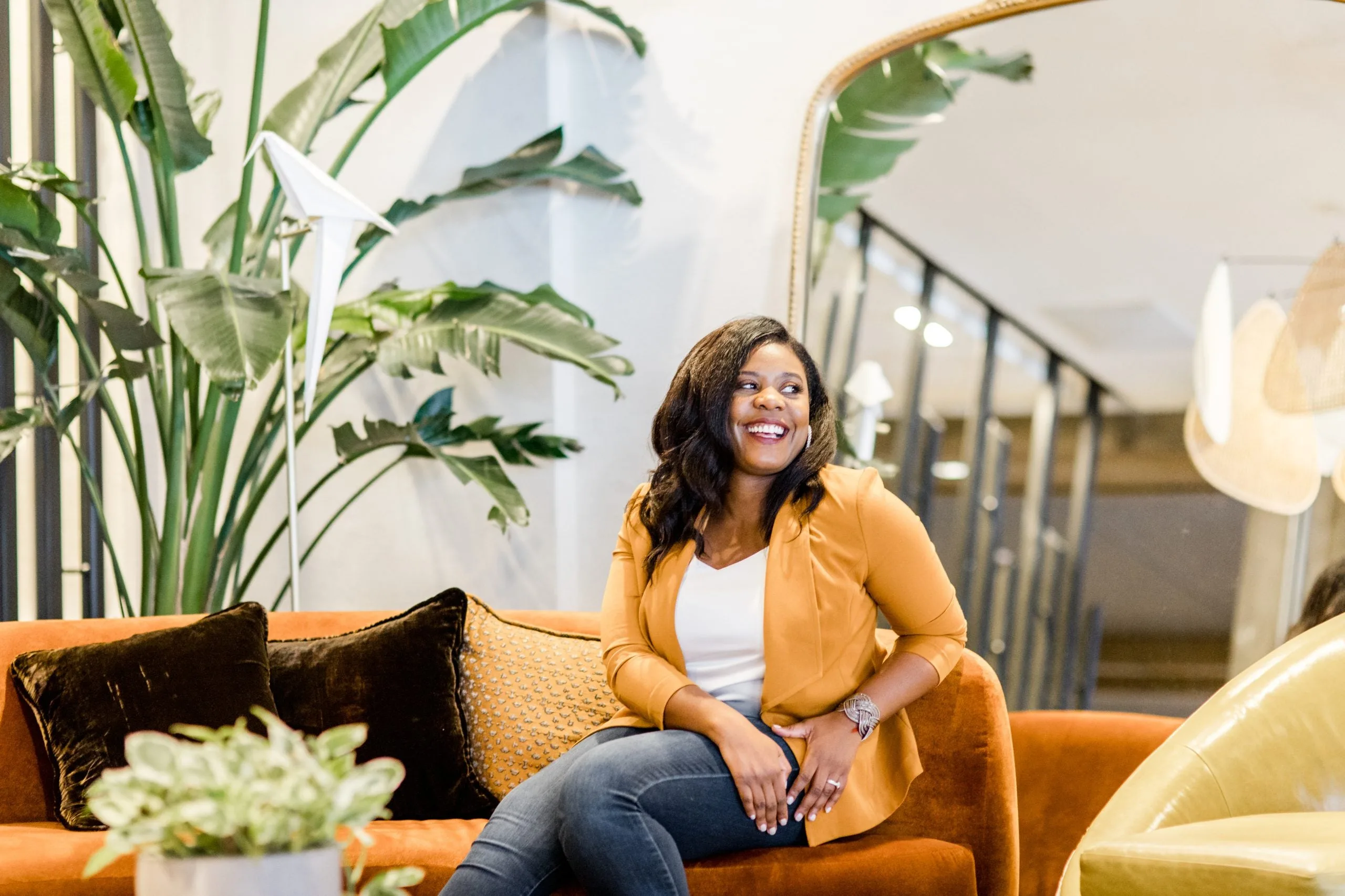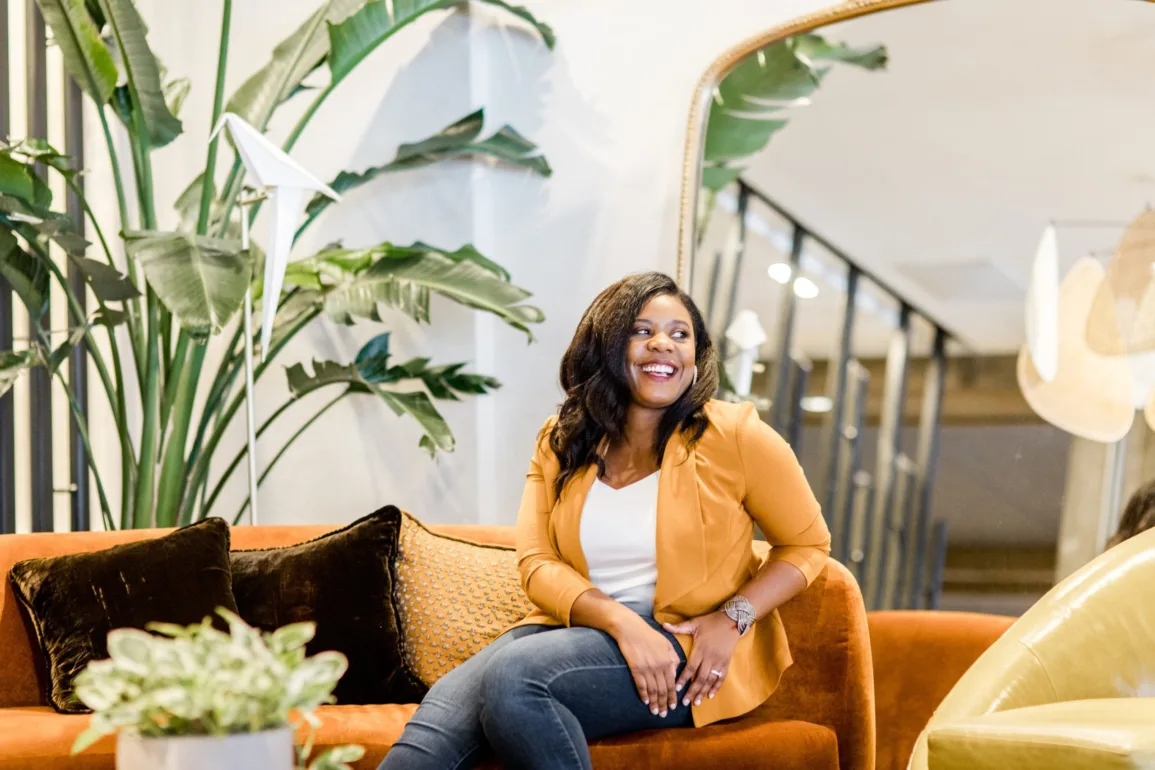
It was a plain paragraph on page 1 of the New York Times, devoid of the usual fluttery wordplay you’d find in a typical wedding announcement.
“June 27, 1895—Ida B. Wells, the colored woman who gained international publicity by her anti-lynching lectures in England was married in Bethel Church to-night to Ferninand L. Barnett, a local colored attorney of prominence, who is the publisher of The Conservator, and the President of The Illinois Anti-Lynching League.”
Despite its ascetic appearance, the short scribe was one of the most powerful demonstrations of Black love in journalism. This acknowledgement of an African American couple’s nuptials in one of the most important publications in the country is something to marvel over, especially since this type of visibility is still a topic of discussion 128 years later.
This is why Charanna Alexander takes her job very seriously.
She is the senior staff editor for New York Times’s revered Love section, the contemporary iteration of the weddings division, a coveted institution integral to high society dating back to the 1850s. She is also the first Black woman to hold the title in in its 128 year history. Much like love itself, the featured content of the department has evolved with its readers, showcasing vows, weddings, modern love and much, more more.
Alexander took the helm in 2021 after working her way up from a news desk assistant role she landed with the publication in 2006. For the past near decade-and-a-half she’s run some of the most historic desks at the paper. Now that she’s in charge of Love, she’s aiming to use the position to not only reimagine what romantic love looks like, but expand the overall definition.
“It’s familial love,” Alexander tells ESSENCE. “It’s friendship. It’s relationships with peers and colleagues. There are so many different ways to express love, and I just get so excited about being able to do that while also facilitating a place where writers can have their first story—to publish things that they believe in that may not fit into other sections of the paper.”
She is a part of a revived generation of editors that recognize how underrepresentation at media companies can impact identity over time, and its bottom line. A 2020 McKinsey analysis lays out the case for inclusion and diversity, stating The most diverse companies are now more likely than ever to outperform less diverse peers on profitability.
Diverse love is a booming business. In the UK, for instance, romance novels’ sales skyrocketed over the last decade, with more than 14.3m units sold between January and August this year across print and digital, per Nielsen BookData according to The Guardian. The outlet also points out that sales hit more than 11m within the time period and has been a steady year-on-year rise.
Alexander isn’t surprised by this.
“I went in saying that I want to shake things up because the section is iconic,” she explains. “The wedding section has been around for over 100 years but it hasn’t changed much in that time. Each editor who has been at the helm of it had a vision and I knew that I had to come in with my own. And that looked like representing the world around me in every story I chose to publish. Showcasing stories not only from my place of experience, but the experiences of people that I would want to meet, that I’m intrigued by, that I’ve heard about.”
An example of this is a recent story she published about polyamorous couples who decided to marry, a journey she says is the furthest thing from her personal existence.
“But I realized that’s something coming into more prominence, and that is newsworthy—I’m still a journalist,” she explains. “I still have my reporter brain activated so if there is something happening out there that has to do with love, relationships, marriage, dating, divorce, or whatever else, we explore it. We don’t want what we print to feel dated.”
As a self-professed lover girl, Alexander is a blissfully happy wife and mother who has figured out how to meld two of her biggest passions, love and storytelling. An enviable position, especially at a time when salient careers in journalism seem to be fleeting. An average of 2.5 newspapers closed each week in 2023 per a recent Northwestern study. Award-winning website Jezebel has closed, NPR has announced it will start deploying layoffs, and whispers that other media companies are barely making it by have reached a fever pitch. This isn’t lost on Alexander, and offers some sage advice for burgeoning journalists.
“I want to say this—don’t be afraid to pivot,” she says. “I was very steady coming out of journalism school that I wanted to be a broadcast journalist, and I was extremely fearful that I had failed when I started working at the New York Times. But my career has shown that a pivot is not a failure. I didn’t give up on that dream. A greater dream was created for me. I hope people are inspired to try different things and let passion and purpose be your guide in your career as much as the accolades and the success. That comes when you’re working on something that you love. Sometimes staying on a regimented path isn’t always the best for you. Don’t be afraid to step off.”
Alexander also acknowledges that being a Black woman in journalism at this time is doubly as hard—she knows that firsthand.
“As the first Black woman to hold this role, I immediately felt the magnitude of the position I’m in,” she says. “With that, I want to challenge our journalists of color to do the work that feels good and don’t feel like you have to represent everyone every time you do something. It’s okay to be a representative for yourself and to be strong and to be powerful in your role, but also leave the door open for someone that looks like you to come and do the same. The pressure sometimes holds you back from being great because you feel like you cannot make a mistake. Everybody should have the ability to work through their career, take missteps, and still rebound. And I think that helped me back in the first couple of months, because I was like, ‘oh, I got to make this section be the freedom song for my community.’ And honestly, it just has to be representative. What has come out of my vision is so much greater than what has come out of my fear—the fear of not living up to the expectations of the people that are inspired.”
“I love love. When I look back at my life, there has never been a shortage of representation of love in all of its facets. And that’s what’s really governed me throughout my life. I hope people can feel that through our stories.”


